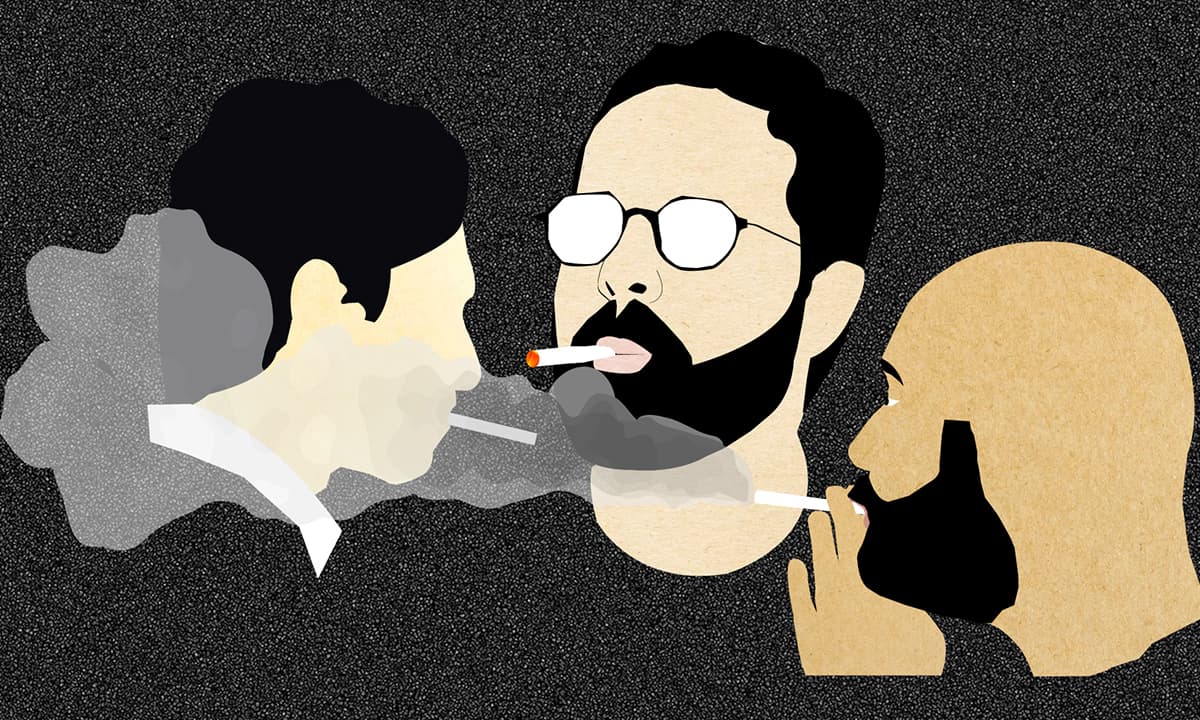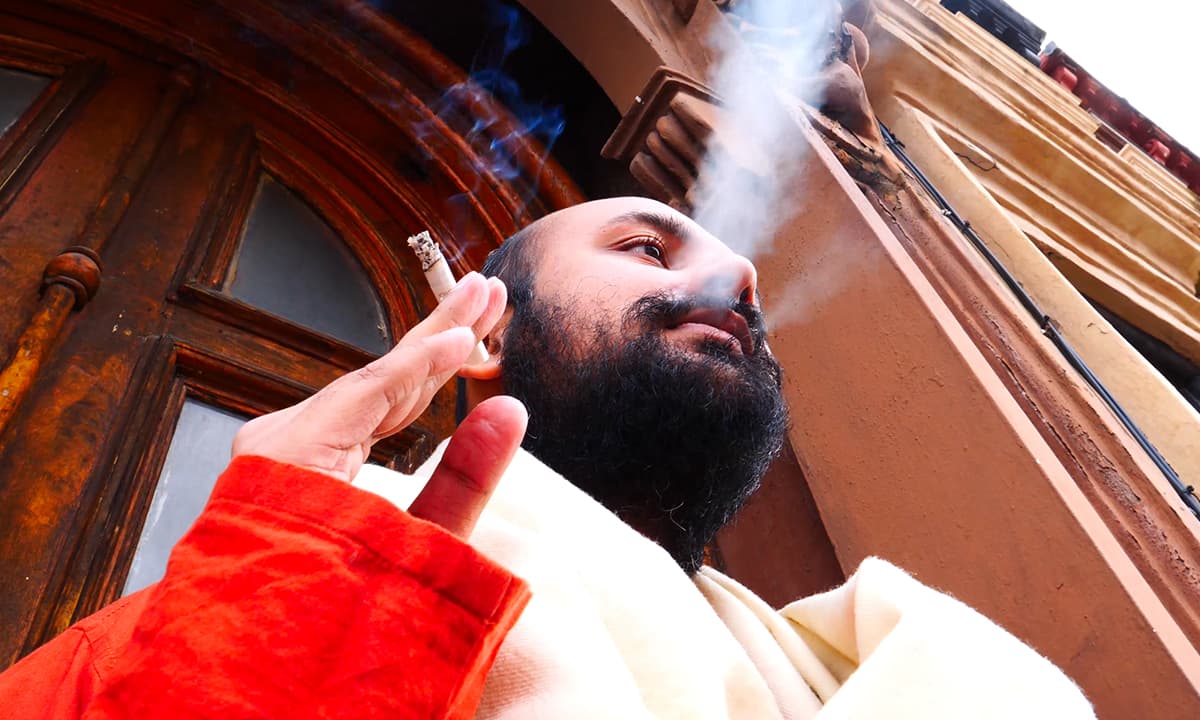
So far, 2019 has already been the year of documentaries with the release of Conversations with a Killer: The Ted Bundy Tapes, Leaving Neverland and The Disappearance of Madeleine McCann one after the other. Perhaps this reflects the rise of a culture where people demand ‘real’ stories rather than concocted ones fed to them over the years, or perhaps documentary-making is an art that is now being explored and understood. Whatever the reason, it is obvious that there are more subjects to make documentaries on, more filmmakers willing to make them and an eager audience waiting to watch them.
Within this new sphere, filmmaker and journalist Fahad Naveed has come out with his documentary Puff Puff Pak. Part of his master’s thesis for New York University’s news and documentary programme, the film premiered at the NYU News Doc Film Festival 2019 in February and had its first screening in Pakistan in April.
The film’s opening scene is one that we are all familiar with — a bustling Sea View decorated with flags of white and green on Independence Day. The crowd consists of either families or groups of males with many of them puffing away on cigarettes. From here the camera transitions to a group of boys and one of them poses with a cigarette in hand. Others with him ask if it’s alright for him to smoke on camera, a question that makes the posing boy try to evade the lens – but only to return with another pose that makes the audience erupt in laughter.

Puff Puff Pak is full of small moments of comedy that Naveed is able to establish with either his shots or his commentary. It follows Naveed’s own journey as a smoker — from his first cigarette as a teenager to his last one in New York. From living in an environment that almost encourages men to smoke, Naveed feels out of place in New York — a city that limits smoking socially, financially and even spatially. Shots of ‘no smoking’ signs outside his university come onto the screen with clips of a slightly upset Naveed trying to indulge his addiction in an ‘inconvenient’ environment.
A conversation with his mother, coupled with the challenges of smoking in New York bring with it a nagging urge to knock the habit. What becomes the watershed moment for Naveed, however, is finding out that his mother has cancer. The film documents Naveed’s journey of giving up smoking. He decides to quit before he visits Karachi in the summer of 2018, but being back in Pakistan rekindles his desire to smoke — his friends are smokers and cigarettes are cheap once more.
But what makes Puff Puff Pak stand out from being just another documentary on an unhealthy habit, is the connection Naveed is able to establish between smoking and gender narratives in South Asia.

Clips from the past – of muscled, handsome men climbing mountains and crossing rivers while smoking – are played, inculcating the idea that cigarettes are for ‘real’ men. Then the scene shifts and we see photographs of headlines deeming actress Mahira Khan scandalous for holding a cigarette in hand alongside Indian actor Ranbir Kapoor. Naveed delves into comedy again, combining his voiceover with short clips of news bulletins that dub the photograph a national scandal.
In his commentary, Naveed expresses his inability to explain to his professors why a woman smoking had whipped up such a frenzy. In Pakistan, smoking communities might still mostly feature men, but that is no longer the case in other parts of the world. Naveed mentions how in 1929, Edward Bernays convinced a group of women in New York to step out into the Easter parade on Fifth Avenue with cigarettes in hand.

This was part of a public relations campaign to increase the smoking sphere to include women such as Bertha Hunt. The campaign was a hit, establishing the cigarettes as ‘torches of freedom’ for women — a phenomenon that seems to have finally reached Pakistan.
In a society where judgements are handed – and sometimes meted out as well – to women as if the mere existence of female species is a bane for humanity, the mere act of smoking for women becomes synonymous with rebellion. Like Bertha Hunt, social activist Sadia Khatri and visual artist Samiya Arif are seen lighting their ‘torches of freedom’ in the documentary, as they talk about how the act liberates them and allows them to be ‘bad’ in a society that polices women in every aspect of their lives.

Puff Puff Pak ends with Naveed in the editing room. He shares how far he has come since his decision to quit smoking but also states how leaving behind his habit in Pakistan is like leaving a community. After all, with around 25 million people smoking their lives away, tobacco products are still relatively affordable in Pakistan.
But Naveed has stuck to his decision, for his mother more than anything else — a reason that tugs on the audience’s heartstrings. His shots of their relationship are relatable, much like the rest of his documentary. In fact, Naveed’s strength lies in opening up to the audience and taking them along on his personal journey.
Like his narrative, Naveed’s visuals are multi-dimensional. He uses animations, advertisements and photographs alongside his shots — all designed to highlight his themes. Attention to detail is key, as proven by a range of montages emphasising specific scenes, particularly the shot of the teenage boy smoking in the first few minutes of the film and of Sadia Khatri smoking comfortably on a rooftop.
The first watch of Puff Puff Pak is enough to show that Naveed has a strong grasp of the art of storytelling. Where he falters is when he moves away from the personal, but even then, he manages to keep the audience hooked with his cinematography and holds their attention with ease till the closing credits. Strengths such as this present Puff Puff Pak as a refreshingly honest film — one that is successful in depicting a multi-layered narrative within the span of 27 minutes.
The writer is a staffer at the Herald.






